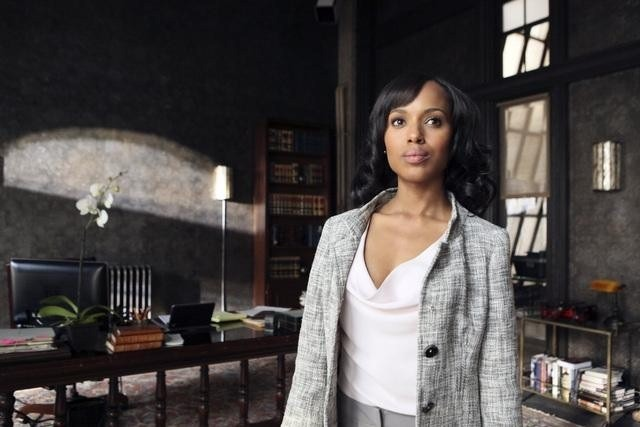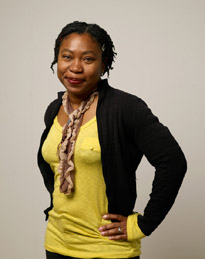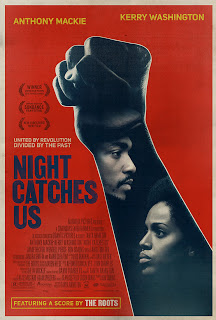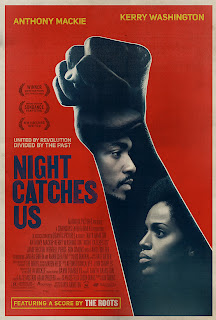 |
| Kerry Washington as Olivia Pope in Scandal |
I love Grey’s Anatomy. Is it melodramatic? Absolutely. But its dramatic storylines, sharp dialogue and diverse cast have hooked me from the very first episode. So when I discovered writer, producer, showrunner Shonda Rhimes created Scandal, a political thriller TV series revolving around a woman of color, I knew I had to watch.
Kerry Washington (a feminist in real life…huzzah!) plays Olivia Pope, an assertive attorney who’s a “crisis management expert,”
inspired by former George H.W. Bush administration press aide Judy Smith (who also happens to be a producer of the show). Olivia runs a small organization of lawyers who fix scandals and clean up messes like murder charges and infidelity. With a subtle and nuanced performance, Washington is definitely the best part of the series.
What’s so interesting (and fucking sad) is that
Scandal is the only prime-time TV show on right now centering around an African American woman. And it’s
the first network show with a black female lead in 30 years (that is horrifying). I’ve often heard Washington is a fantastic actor and she was great in the heartbreaking
For Colored Girls. Here she commands the screen with confidence and poise. Olivia is an intelligent, successful and empowered woman. Others look up to her, revere her and even fear her shrewd insights and relentlessness to finish a job. She’s demanding, requiring her staff to pull all-nighters and enforcing rules like no crying in the office and not answering “I don’t know” to a question she asks. Powerful politicians turn to her for advice. She negotiates deals on her terms. While new employee Quinn (Katie Lowes) idolizes her, Olivia is far from a paragon of perfection. She’s vulnerable with a messy and complicated love life. She’s flawed, not always likeable (although I personally love her!) and uses Machiavellian tactics to complete a job. But this mélange makes her all the more interesting.
Washington was recently on The Melissa Harris-Perry Show (one of my absolute favorite feminist icons EVER!!!). She talked about inclusivity and how she and Harris-Perry, as two women of color on TV, are “expanding the idea of who ‘We the People’ is.” She also discussed playing a complex female character on-screen:
“…When I read this script, I was so blown away by this woman who in one area of her life, in her professional life, she’s brilliant and sophisticated and in power. And then in her personal life she’s vulnerable and torn and confused. And I thought this is an incredible challenge for any actor. But we also don’t get to do that often — as women in this business, as people of color in this business — to have all of that complexity to explore.”
And she’s right. We too often don’t see complex women, especially women of color, on-screen.
I loved the political intrigue and the focus on a single, accomplished, career-driven woman. And of course how could I not be delighted that Henry Ian Cusick (aka dreamy Desmond from LOST) has found a new series. I was thrilled that the show opens from Quinn’s perspective, taking a job with Olivia because of her reverence for her stellar reputation. I also loved that within the first 7 minutes, a character derided a potential client because he was an anti-choice, anti-gay Republican. While many people assume the media suffers from a liberal bias, too few shows actually discuss abortion or LGBTQ issues.
While most of it is good, some of the dialogue felt a bit staged or forced. I cringed when Olivia body polices and chastises new employee Quinn for displaying too much cleavage and when Abby (Darby Stanchfield), one of Olivia’s employees, gleefully calls a female murder victim a whore…and drops the whore word a few more times in the next episode too. While there are several female characters (none of whom are really fleshed out yet beyond Olivia), most of the time they’re interacting with men. Although Olivia does have conversations with a young woman who claims is having an affair with the president (Olivia’s former boss) and with the wife of a Supreme Court nominee. No strong female friendships emerge yet. But we’re only 2 episodes into the series. Female friendships comprise the cores of Rhimes’ other shows, Grey’s Anatomy and Private Practice. So I’m hopeful that we’ll see more female interaction as the series progresses.
Much like its complicated protagonist, the series isn’t perfect yet. But it’s got potential. I’m rooting for it because we can never have too many sharp political dramas. And we can never have too many female leads, especially with women of color.
Scandal is a big deal. Not only do we have a woman of color protagonist, we have a series written and created by a woman of color. With
Grey’s Anatomy, Private Practice and
Scandal, Rhimes belongs “
in an elite group of TV show runners who have multiple series on the air at the same time.” In each of Rhimes’ television shows, she puts women at the forefront. While she has held open casting calls for all ethnicities and has African American, Latina, Asian American and white women in her shows, she’s never had a series revolve around a woman of color. Until now.
“I think it’s a really special time to be a woman of color in this business. The landscape of who has the power is changing. We are in more influential positions and are able to have a say in the stories that are told. I feel very lucky to be in the business now…”
“It will be easier when black actresses become more visible in roles across the spectrum, (think fantasy hits like Harry Potter, or romantic dramas like The Notebook) and not just ones that call for an African-American female.”
“It’s risky for a network that depends on millions of viewers for advertising revenue to cast a lead that the majority of viewers (read: white people) may not relate to. While a show like Pan Am (fondly known as Carefree White Girls Explore the Third World) can fail to take off without consequence, it feels, at times, as if the fate of every black actor and actress on television rides on the success or failure of one show each season.”
In a time when Trayvon Martin was shot for being a young black man wearing a hoodie…when racist Hunger Games fans can’t empathize with a black character in the film adaptation…when accomplished and ridiculously talented black female actors like Viola Davis have a hard time finding roles…when black female actors must play either maids or drug addicts or sassy best friends…when female actors of color get sidelined from the cover of Vanity Fair — our society tells people of color over and over and over again implicitly and explicitly that their bodies and their lives don’t matter.
It’s time to change that. It’s time for our media to stop revolving around white men’s stories and reflect the diversity of our world.








